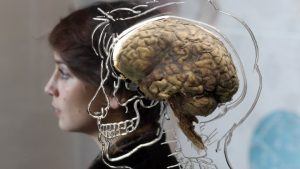Ed Yong in The Atlantic:
 Frank Jacobs, then at the University of California at Santa Cruz, had taken stem cells from humans and monkeys, and coaxed them into forming small balls of neurons. These “organoids” mirror the early stages of brain development. By studying them, Jacobs could look for genes that are switched on more strongly in the growing brains of humans than in those of monkeys. And when he presented his data to his colleagues at a lab meeting, one gene grabbed everyone’s attention.
Frank Jacobs, then at the University of California at Santa Cruz, had taken stem cells from humans and monkeys, and coaxed them into forming small balls of neurons. These “organoids” mirror the early stages of brain development. By studying them, Jacobs could look for genes that are switched on more strongly in the growing brains of humans than in those of monkeys. And when he presented his data to his colleagues at a lab meeting, one gene grabbed everyone’s attention.
“There was a gene called NOTCH2NL that was screaming in humans and off in [the monkeys],” says Sofie Salama, who co-directs the Santa Cruz team with David Haussler. “What the hell is NOTCH2NL? None of us had ever heard of it.”
The team ultimately learned that NOTCH2NL appears to be inactive in monkeys because it doesn’t exist in monkeys. It’s unique to humans, and it likely controls the number of neurons we make as embryos. It’s one of a growing list of human-only genes that could help explain why our brains are so much bigger than those of other apes.
More here.
